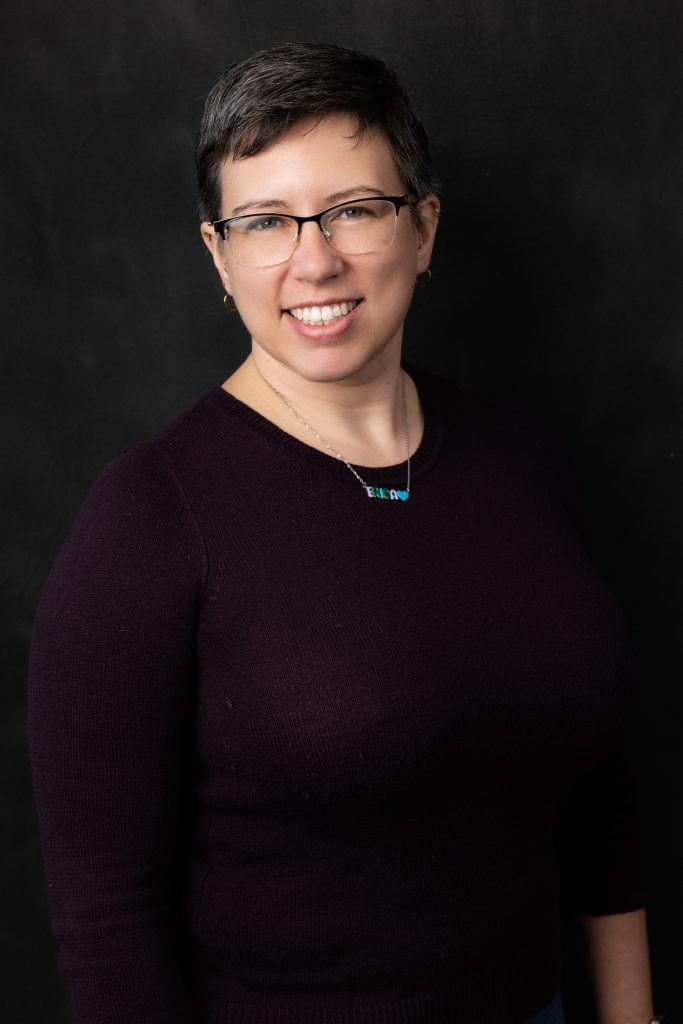

Dr. Erica Caden (she/her) is a passionate advocate for inclusion in science, with a focus on advancing experimental physics and creating supportive academic communities. Since 2016, she has served as a research scientist at SNOLAB, Canada’s Deep Underground Research Facility, contributing to world-leading research in particle physics. Dr. Caden’s current work focuses on the SNO+ and nEXO experiments, both of which aim to detect a rare nuclear reaction called “neutrinoless double-beta decay.” Observation of this process would reveal critical insights into neutrino properties, such as their mass and quantum nature, and could help explain why the universe favours matter over antimatter. She also works on the HALO experiment, and serves on internal review committees at SNOLAB.
Dr. Caden completed her Ph.D. at Drexel University in 2013, conducting her dissertation research on a neutrino oscillation experiment at a nuclear reactor in France. Her work advanced the precision of detecting low-energy neutrino sources using a small scintillator detector—a technique still applied in modern neutrino research with implications for nuclear non-proliferation.
Beyond her scientific research, Dr. Caden has been dedicated to fostering community and inclusion in academia. As a graduate student, she founded the Physics Graduate Student Association at Drexel University, providing a space for students to connect, discuss research, and support one another. In recognition of her contributions to science communication and outreach, Dr. Caden received Sudbury’s “40 Under Forty” award in 2019 and a similar alumni award from Drexel University in 2020. She currently chairs SNOLAB’s instances of the TRISEP graduate summer school, co-chairs SNOLAB’s EDI (Equity, Diversity, and Inclusion) Committee, and serves on the organizing committee for the Sudbury Regional Science Fair.
In 2024, Dr. Caden co-authored a peer-reviewed paper titled “Enhancing Equity, Diversity, and Inclusion in Physics: Perspectives from North American Underground Laboratories”. She has presented this work at multiple conferences as university colloquia.
How would you describe your work in simple terms?
“I study neutrinos, the smallest particles we can detect, which behave differently than every other particle we know of. Understanding neutrinos can help us understand the world around us. They are weird, and bend or break a lot of previously held physics rules, which makes them fascinating. Our neutrino experiments consist of giant detectors, often in remote locations, which take hundreds of people to run, and last for a decade or more.”
Why did you choose physics?
“I love understanding things in a deep way, especially the world around us.”
What is something about your work that might surprise people?
“Being a physicist isn’t just about being smart, but about being curious, and not giving up when the problem in front of you looks insurmountable. Science is truly a creative endeavour. Research is about trying to answer questions that no one has answered before. Part of that is coming up with the tools, and developing better questions as we go along.”
Publications
Links
Contact details
erica.caden@snolab.ca
(705) 692-7000 X 2253